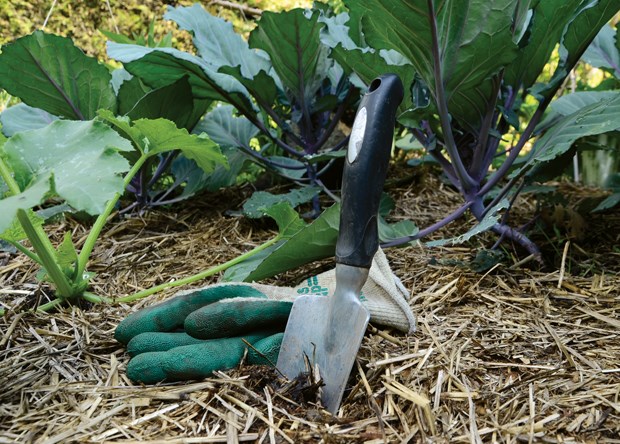Things are never as easy as passing a new law and trusting everyone will change their habits and follow the rules.
Humanity just doesn't work that way, people need to be shown the path of change. As so many people have said before, education is the silver bullet that can change minds, perceptions and attitudes. But education seems to be lacking when it comes to the District of North Vancouver's cosmetic pesticide bylaw, according to district resident Sally Sheppard who says she is "frustrated by the lack of follow-through by the DNV in upholding Bylaw 7686."
The bylaw Sheppard is referring to is the District of North Vancouver Pesticide Use Control Bylaw No. 7686, which came into effect on Jan. 1, 2009. The bylaw restricts use of cosmetic pesticides on all single and multi-family residential properties within the district. Commercial, industrial, institutional and provincial utility properties within the district are not restricted by the bylaw. The district's bylaw also allows pesticide application for building structural protection and indoor applications for health safety reasons.
According to the B.C. Atlas of Wellness, 2nd Edition, by 2010 there were approximately 170 communities across Canada with cosmetic pesticide bylaws and by 2011, 33 of those municipalities were in British Columbia.
All bylaws are phased in to allow businesses and residents to adapt and for everyone to be educated.
Sheppard contacted me to look into the issue of a lack of pesticide education in the district. She initially wrote to Mayor Richard Walton saying, "I am deeply concerned about the continued use of cosmetic herbicides and pesticides within the district."
"Following the passing of Bylaw 7686 on Jan. 1, 2009, there has been very little done to educate residents of the DNV, and products such as Roundup continued to be sold at local stores," Sheppard lamented to the mayor.
Sheppard sent two letters to the mayor in April and contacted me in May with her concerns.
I recently contacted Mairi Welman, manager of strategic communications and community relations for the district. Welman's response to me was the same response Sheppard received from the mayor, which reads in part, "Following the implementation of the bylaw in January 2009, the District of North Vancouver (DNV) attended and presented at several community events to highlight the new bylaw, handed out acceptable pesticide use brochures and provided general information for Gardensmart options. Family Day at the North Shore Automall, Deep Cove Daze at the Musart Cultural Society, Artisans Market at the Lonsdale Quay Farmers' Market, Capilano Library and Park and Tilford Gardens were just a few of the events/venues the DNV attended in 2009 to bring awareness to the new Pesticide Bylaw."
The district's response also mentioned that the regulation of pesticide sales is "governed by the Province's Integrated Pest Management Regulation," and "the Federal Government is responsible for the registration of pesticides for use in Canada."
The Union of B.C. Municipalities asked the provincial government in 2009 to "enact provincial legislation that will ban the sale and use of cosmetic pesticides province-wide." But sadly, that election promise went unfulfilled.
Sheppard is a certified residential landscape designer who also worked at GardenWorks. She has spent much of her time trying to educate her clients about the importance of the pesticide bylaw.
"Not only are most people largely unaware of the bylaw's existence, few seem to understand the environmental implications of using products such as Roundup," she says.
Sheppard is not alone in her concern about the poisonous effects of pesticides on people and the planet. Many of us want governments to properly educate citizens with modern understanding.
"Please revisit this important issue and implement measures to educate the public," was all Sheppard asked of Mayor Walton.
And some days I think that's all any of us can hope for, since there is currently no hope for a B.C. ban on cosmetic pesticides.
As Mayor Walton has said before, as quoted in a 2008 North Shore News article, "What this bylaw does is it makes people think; it makes them take a look at their behaviour."
Unfortunately, we humans need to be shown the way down the garden path to pesticide compliance. So duty falls on the District of North Vancouver to uphold the law and increase public awareness of cosmetic pesticide regulations.
Here are my personal recommendations for pesticide use: Avoid all use of pesticides in your garden and home. Wash all fruits and vegetables with dish soap in warm water to remove government-approved pesticide residue limits. Keep children away from all lawns, gardens or foods that have been sprayed with pesticides, unless you want your children to get sick. Buy organic, grow holistically and protect Mother Earth and the future of our children. It's not too much to ask.
Todd Major is a journeyman horticulturist, garden designer and builder, teacher and organic advocate. [email protected]



